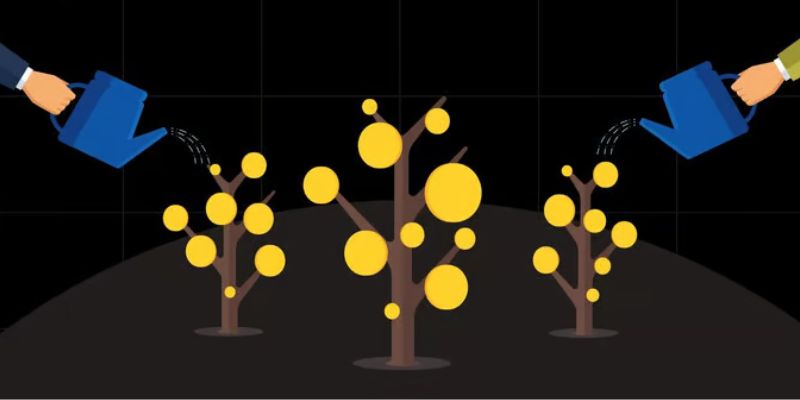ESG Investing in Emerging Markets: Navigating Opportunities & Pitfalls
Chasing profits with a clear conscience is no small feat, especially in parts of the world where rules can be murky and risks run high. Yet, ESG investing in emerging markets is booming, and for good reason. It aims to make money while doing good, combining the thrill of potential high returns with the pride of promoting ethical practices. But it’s tricky terrain. You need to know the land. What’s the real deal with ESG in places where growth sprints ahead of regulation? How do you steer clear of harm while eyeing those gains? Stick with me, and I’ll guide you through the highs, the lows, and every sharp turn of ESG in these vibrant markets.
Understanding the Landscape of ESG Investing in Emerging Markets
Grasping ESG Criteria for Portfolio Selection
Picking stocks in new markets is tough. You want growth. You also want good. ESG helps with that. It means using your values to guide your stock picks. Think of ESG as a filter. It keeps the bad out and lets the good in. It rates companies on how they act toward Earth, their people, and their bosses.
First, think green. How do firms treat nature? Do they pollute? Next, think fairness. Do they care for their workers? For the people around them? Last, think leaders. Are the bosses fair and open? Do they hide anything? Smart picks use ESG to find firms that care and can grow your money too.
Assessing Environmental and Social Governance in Developing Economies
Now, let’s dive deeper. In places with less cash, ESG shines even brighter. Here, it’s not just about money. It’s about making lives better too. To do good in these places, you must look harder. Is the firm helping the town it’s in? Does it teach people new skills? Is it cutting down on waste or making less smoke?
You want to help fix the Earth. That starts with where you put your money. To make a real change, you want firms that help slow climate change. This can mean many things. Like making energy that’s clean. Or helping farmers grow food with less water.
Investing right means knowing lots. You check a firm’s ESG score like a report card. Good scores can mean fewer risks and more money over time. But here’s the thing – the scores must be true. Firms must show the work just like in school. And that’s where ESG gets tough.
In new markets, rules are not always clear. This can make it hard to trust the scores. So you have to be smart. You have to look at many things. This means talking to people, reading reports, and asking questions. That’s how you find the gems that do good and do well.
Taking care of Earth is a big job. We all need to play our part. Putting money into ESG is a powerful way to do it. It’s about more than just cash. It’s about the future we will all share.
Remember, good investments help the world. They create jobs and keep the air clean. They make sure bosses are honest. They help countries grow strong. Your money can do good and grow if you pick the right ESG stocks. It’s not just about being fair. It’s also about being smart with your money. That’s what ESG is all about.

ESG Performance and Risk Management Strategies
Navigating ESG Performance Metrics and Financial Returns
How do ESG criteria improve financial returns? ESG criteria can lower risks. They can boost brand appeal. They often lead to better profits. In emerging markets, this link is clear. When firms care for our world, they do well. They draw in more investors who like the earth.
Take a company that uses solar power. This cuts its costs and helps the earth. Or a firm that treats workers well. This can lead to better work done. Happy workers and lower costs can mean more money for the firm. So, picking stocks with good ESG scores can pay off.
Incorporating Risk Management in ESG Investments
Why does risk management matter with ESG? Risks come in many shapes. In new markets, these risks can be bigger. So, we check to keep investments safe. We look at how firms act. We see if they obey rules, treat folks right, and keep the earth safe. Bad acts can hurt an investment. Good acts can protect and grow it.
In these markets, things change fast. Rules can shift. The weather can be harsh. So, we watch and plan for many risks. Firms that care for our world cope better. They can get through tough times. They can even find new chances to grow.
By using ESG metrics, we pick firms wisely. We look for strong leaders who think ahead. These leaders make choices that last. They know that doing good brings good returns. They build trust and stand strong when things shake.
So, we put money where our values are. That’s smart investing. It keeps our cash safe. And it helps the world.

The Impact of ESG Investing in Local and Global Contexts
Exploring Impact Investing and Community Development in Emerging Markets
Impact investing in emerging markets goes beyond money-making. It shapes lives and lands we touch. Take a village where capital boosts a startup. This can offer jobs and skills people need to grow. Now stretch that impact across a whole country. We’re talking about serious positive change.
New businesses pop up, each promising to improve life there. This is where I look close at the ESG. My aim? Keep things in check. Let’s say a startup vows to clean water. We check they’re doing it right and not just talking big. If they pass the test, they get the investment. This helps us all, here and worldwide.
Aligning Investments with Sustainable Development Goals (SDGs)
Let’s chat about the big picture: the Sustainable Development Goals, or SDGs. These goals guide us to do right by our world while we invest. Think clean energy, good health, and quality education. Money put into these goals can help the whole planet.
Tying investments to these goals isn’t just kind. It’s smart. Why? Say a company combats hunger by making farming better. It’s hitting an SDG, sure. But did you know it also could make the food cheaper? This helps the local folk, and it makes sense for my clients.
Remember, ESG taps into real needs. Real hunger. Real learning. Our choices in finance can aid folks far away. And when they do well, often, so does the cash we put in. It’s all linked.
So, my work? It’s all about that link. The bond between our better world and smart, kind investing. We use hard facts, like ESG marks, to pick where money can do good and grow. We aim for wins on all fronts: for the people, our planet, and our pockets.
Tools and Practices for ESG Integration in Emerging Markets
ESG Disclosure and Corporate Governance in Developing Nations
When you dive into ESG investing in places where folks are just getting started, you’ll find a mix of hope and hard work. Good ESG disclosure and strong rules at companies help a lot. They make it clear how a company acts on stuff like taking care of the planet and treating people right.
What’s ESG disclosure? It’s like a report card for companies. It tells us how they handle risks and care for the environment. These report cards matter because they show who’s really trying to do better. In emerging markets, getting this info can be tough. But it’s key to pick stocks that will do well and do good at the same time.
Now, for the business rules—or governance—we want companies that play fair. This means leaders that listen to all who have a stake in the company, not just the big bosses. When they do this right, your money is safer, and the company can grow strong.

Investing in Renewable Energy and Sustainable Infrastructure Projects
Next up, let’s chat about clean energy and lasting projects. Why? ‘Cause they’re a big deal for the Earth and our future. In places that are growing fast, they need power that doesn’t harm our air and water. That’s where renewable energy steps in—it’s a game-changer. It uses stuff like the sun, wind, or water to make electricity without leaving a mess.
But how do you put money into these projects? Look for green bonds. They’re special because they promise to use your cash for projects that help the planet. By choosing these, you also back ideas that build better roads, schools, and hospitals. Plus, these choices can make more money over time.
You see, investing in clean power and good projects can mean communities get stronger. Kids can learn in safer schools, people can get to work easily, and folks can live healthier lives. All that, and you still get to make some coin—it’s a win-win.
In the end, these tools and practices aren’t just about cash. They’re about making a difference in our world, bit by bit. They show that where you put your money talks. It tells a story of a future we’re all trying to build—one where making money and doing right by our planet and its people go hand in hand.
We’ve dug deep into ESG investing in emerging markets. We started by learning how to select ESG-strong companies. We looked at how developing regions handle their environmental and social duties. It’s clear that smart ESG choices can help manage risks and improve returns, but it’s not just about the money. Our choices also fuel progress in local communities and align with global goals for a better future.
We navigated metrics, understood risks, and explored how our investments impact real people and the planet. It’s about putting money where it can grow and do good. We also saw tools for better ESG practices, from clear company reports to investing in clean, sustainable projects.
Remember, we have the power to make a difference with our investment choices. Let’s invest wisely and help emerging markets shine bright.
Q&A :
What is ESG investing and why is it important in emerging markets?
ESG investing refers to investment strategies that consider a company’s environmental, social, and governance practices alongside financial metrics. In emerging markets, ESG investing is crucial because it encourages sustainable business practices that can lead to long-term economic growth and stability, while also addressing issues like climate change, social inequality, and corruption.
How does ESG investing in emerging markets benefit investors?
Investing in emerging markets with strong ESG principles can benefit investors by potentially reducing risk and enhancing returns. Companies with robust ESG practices are often better managed, more resilient to crises, and aligned with global sustainability trends. This may lead to improved financial performance and higher investor confidence.
What are the challenges of ESG investing in emerging markets?
Challenges in ESG investing within emerging markets include lack of standardization in ESG reporting, varying legal frameworks, and potential for higher volatility. Investors may face difficulties in accurately assessing a company’s ESG performance due to insufficient or unreliable data.
How can investors measure the impact of ESG practices in emerging market investments?
Investors can measure ESG impact by analyzing ESG scores and reports from credible rating agencies, monitoring adherence to international ESG frameworks, and evaluating company-specific sustainability outcomes. Regular assessment helps ensure that investments align with the desired social and environmental impact.
What strategies can be used to effectively incorporate ESG criteria into investment decisions in emerging markets?
To incorporate ESG criteria effectively, investors can engage in active ownership, conduct thorough ESG due diligence, and integrate ESG risk assessments into their investment analysis. Partnering with local experts and adopting a collaborative approach with investee companies can also foster stronger ESG practices in emerging markets.

